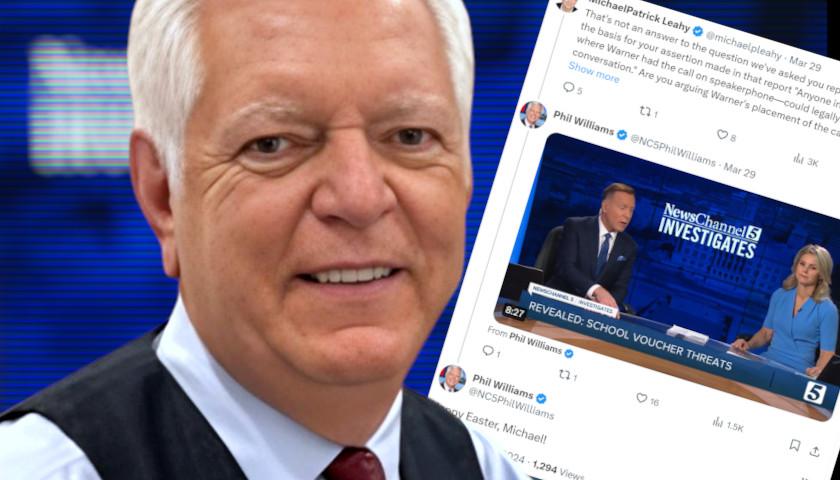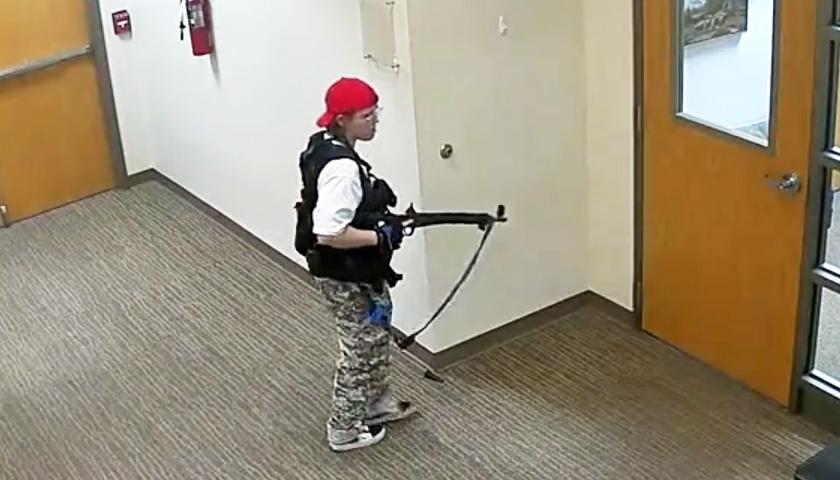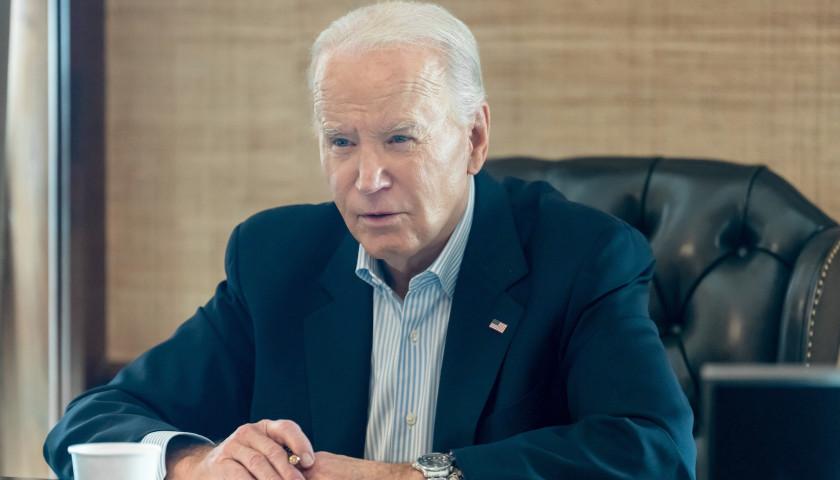Live from Music Row, Wednesday morning on The Tennessee Star Report with Michael Patrick Leahy – broadcast on Nashville’s Talk Radio 98.3 and 1510 WLAC weekdays from 5:00 a.m. to 8:00 a.m. – host Leahy welcomed John Harris, the founder and CEO of Tennessee Firearms association to the newsmaker line to comment on the Tennessee General Assembly’s lack of awareness of the Second Amendment.
Leahy: We are joined on the newsmaker line right now by our friend of many years, John Harris. John is the founder and CEO of the Tennessee Firearms Association. This is a group that defends the Second Amendment here in Tennessee and has done so for 28 years. Good morning, John. Thanks for joining us.
Harris: Good morning. Thank you.
Leahy: John, what’s going on with the Tennessee General Assembly? Are you happy, or are you displeased?
Harris: I will say I am not surprised by the cavernous lack of constitutional stewardship shown by our Senate this week.
Leahy: That’s quite a phrase. You call it the cavernous lack of constitutional awarenesses. Did I get that?
Harris: Stewardship.
Leahy: Cavernous lack. That’s pretty good. That’s a great phrase.
Harris: It’s unfortunate. It really is.
Leahy: Tell me about it. What do you mean by that, John?
Harris: We have, discussed and pushed through TFA now for two decades or better, the concept of Tennessee’s lack of true constitutional carry. And a fact that clearly dates back in our statutes to at least 1801. And the Tennessee legislature, particularly under the control of the Republicans for the last 13 years, and the Republican leadership, particularly in the Senate, have used every opportunity they had to block and stonewall efforts to try to move Tennessee towards true constitutional carry, which is simply an environment that says if you can legally possess a firearm, it just simply isn’t a crime for you to carry it in public.
Leahy: Wherever you want in public.
Harris: Right. It’s what most of us think of it as the free exercise of a constitutional right, and we don’t have it. We’ve never had it in Tennessee with respect to the Second Amendment.
Leahy: I’m just surprised that you constantly think that here in the United States, we’ve got to have our constitutional rights. (Chuckles)
Harris: I feel like I’m talking to the leadership in China sometimes as opposed to elected officials in a constitutional republic because they really don’t care what the governing document that restricts their authority as elected officials says.
They do what they want to do and they listen to both Governor Haslam’s and Governor Lee’s administrations, which clearly have demonstrated in the hearings this week as one of the stories on The Tennessee Star this week, showed quite clearly that they don’t care what the Constitution says, nor do they really even understand what the Constitution says in terms of the existence of this right, and what the right means, despite the fact that there are now within the last 15 years, three U.S. Supreme Court decisions have laid it out quite clearly what this concept stands for.
Leahy: John, do you think that you and I ought to give them, copies of the book that you helped co-author with me, The Guide To The Constitution and the Bill of Rights for Secondary School Students? I think our kids that go to the Constitution Bee probably know the Constitution better than some of our leaders in the Tennessee General Assembly.
Harris: That would be a marvelous idea. It’s sad that it would be necessary, but in this particular context, we’re talking about a provision of the Constitution that is literally one sentence, and the operative phrase is less than 10 words. They can’t get it.
Leahy: Shall not be infringed.
Harris: Yes.
Leahy: Shall not be infringed. Actually, that is four words, shall not be infringed.
Harris: No doubt about it. It’s clearly a disposition and Governor Lee’s leading the charge, but he’s got a lot of support, particularly in the Senate with Randy McNally and Jack Johnson and Todd Gardenhire, that they don’t want this particular constitutional right to be recognized or understood in Tennessee.
Leahy: Is that bill dead in the water now?
Harris: Here’s what happened. The bill came through the house last Wednesday and came out of the House Civil Justice Committee in a format that we were substantially happy with. There had been an amendment put on it that we did not like because it created a conflict among four different statutes.
But otherwise, it would’ve done two, or three things of necessity. It would’ve eliminated a sentence in the Tennessee statutes that says it’s a crime to carry a firearm with the intent to go armed. That gets us substantially to the base concept of constitutional carry.
The next thing it did was it would have provided that the handgun-only restrictions under Tennessee law for permits and permitless carries would be repealed. All of those references to handguns would be substituted with references to the phrase firearms, which again, in the constitutional context, are not limited to firearms, but they certainly aren’t limited to handguns.
So it would’ve been a move in the right direction to, say, firearms. Then the third thing it would’ve done is it would have changed the permitting age and the carry in general, from 21 down to 18. And that’s not really a change because the state has executed an agreement to be submitted in federal court in East Tennessee that already says that.
For example, Senator Johnson’s bill from 2021 to impose that restriction on its face violates the Second Amendment, 14th amendment and constitutes a federal civil rights violation.
Reducing it to 18 statutorily cleans up the code, but it’s something the state has already agreed to it’s new Attorney General is completely unconstitutional and can’t be enforced anyhow. And so that’s what came through the House and is headed to the House floor, and Speaker Sexton signed onto that last week as a sponsor. So we feel comfortable that it’s at least going to pass in the House.
Then yesterday in Senate judiciary, we’ve got a committee of people appointed by Randy McNally to serve on that committee. Two of the nine are Democrats from Memphis, at least seven Republicans, and you’ve got to have five affirmative votes to get a bill out of that committee.
Senator John Stevens has done a good job presenting this bill and advocating that we now have a responsibility in the legislature to follow the Supreme Court’s Bruen laws carrying the bill. That was the companion version of what came through the house last week.
And we had been told that of the seven Republicans, only three, including Stevens himself, who serves on the committee, Senator Kerry Roberts and Senator Don White were willing to vote for the bill. And that left Todd Gardenhire, the chairman, John Lundberg, Paul Rose, and Trent Taylor.
Four Republicans that would support that bill were listening predominantly to representatives from TBI in the Department of Safety who were sent over there, according to Elizabeth Stroker’s own words, Governor Bill Lee, to oppose the legislation.
Listen to today’s show highlights, including this interview:
– – –
Tune in weekdays from 5:00 – 8:00 a.m. to The Tennessee Star Report with Michael Patrick Leahy on Talk Radio 98.3 FM WLAC 1510. Listen online at iHeart Radio.




